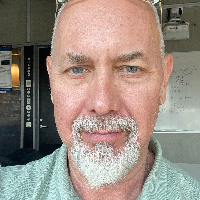We use cookies on this website. Cookies help us deliver the best experience on our website. Read about cookies.
-
- Education
- Education
- Programmes and courses
- Applications and admissions
- Tuition fees
- Scholarships
- Exchange studies at Malmö University
- Study Guidance
-
- After admission
- After admission
- Moving to Malmö
- Pre-orientation
- Arrival guide
-
- About studies at Malmö University
- About studies at Malmö University
- Why choose Malmö University
- Understanding university studies
- Connect with our students
On the page -
- Research
- Research
-
- Doctoral studies
- Doctoral studies
- Doctoral courses
-
- Doctoral schools
- Doctoral schools
- Adaptation of urban space through sustainable regeneration
- ComBine
- Culturally Empowering Education through Language and Literature
- Education, Learning and Globalisation
- Finding ways in a time of great future challenges (FinnFram)
- Swedish National Graduate School in Science and Technology Education Research
- Learning in Multicultural Societal Contexts
- Pedagogy and Vocational Skills
- Relevancing Mathematics and Science Education (RelMaS)
- Sustainable Movement Education
- The National Research School for Professionals in Social Services
- Research subjects
-
- Research centres
- Research centres
- Biofilms Research Centre for Biointerfaces
- Citizen Health
- Imagining and Co-Creating Futures
- Institute for Urban Research
- Malmö Institute for Migration Studies
- Literacy and Inclusive Teaching
- Centre for Work Life Studies
- Sustainable Digitalisation Research Centre
- Centre for Sexology and Sexuality Studies
-
- Research publications
- Research publications
- Search for research publications in Diva
- Malmö University Press
- Research events
- Participate in a research study
- Coffee Break Quiz
On the page -
- Collaboration and Innovation
- Collaboration and Innovation
-
- Levels of collaboration
- Levels of collaboration
-
- Local collaboration
- Local collaboration
- Muvah
- Co-Create Malmö
- Regional collaboration
- National collaboration
-
- International collaboration
- International collaboration
- UNIC
- Innovation
- Collaboration with students
-
- Collaborate with researchers
- Collaborate with researchers
- Labs and facilities
- Culture collaboration
- Support Malmö University
- Alumni & Friends
On the page -
- About us
- About us
-
- Faculties and departments
- Faculties and departments
-
- Faculty of Culture and Society
- Faculty of Culture and Society
- Department of Global Political Studies
- School of Arts and Communication
- Department of Urban Studies
-
- Faculty of Education and Society
- Faculty of Education and Society
- Department of Childhood, Education and Society
- Department of Sports Sciences
- Department of Culture, Languages and Media
- Department of Natural Science, Mathematics and Society
- Department of Society, Culture and Identity
- Department of School Development and Leadership
- The Centre for Teaching and Learning (CAKL)
-
- Faculty of Technology and Society
- Faculty of Technology and Society
- Department of Computer Science and Media Technology
- Department of Materials Science and Applied Mathematics
- Faculty of Odontology
- University Dental Clinic
-
- Find and contact Malmö University
- Find and contact Malmö University
- Visit Malmö University
-
- News and press
- News and press
- Graphic manual
- Map of the buildings (Google Maps)
- Merchandise
- Supplier information and invoice management
- Whistleblowing
- We will help you with your questions
- Management and decision-making paths
-
- Malmö University's strategy 2030
- Malmö University's strategy 2030
- Sustainability
- Widened recruitment and participation
- Quality assurance work at the University
-
- Malmö Academic Choir and Orchestra
- Malmö Academic Choir and Orchestra
- Student work – video pieces
-
- Annual Academic Celebration
- Annual Academic Celebration
- Academic traditions
- Meet our new professors
- Meet our new doctors
- Honorary doctors
-
- The University in a troubled world
- The University in a troubled world
- Campus total defence
On the page

Simon
Niedenthal
Associate Professor/Professor
simon.niedenthal@mau.se
+46 40 665 71 64
orcid.org/0000-0003-4132-2287
Presentation
The exploration of olfaction—the sense of smell—is having a golden moment. Perhaps never before in modern history have so many people been aware of the importance of intact olfaction to well-being; post-COVID 19 sensitivity to smell loss has given way to a new cultural landscape in which teen perfume reviewers on TikTok have gained remarkable influence, while companies like DoTerra, promoting essential oils for home use, have taken off. On the scientific front, we are continually being overtaken by new research that busts old myths about our sense of smell and opens new application areas for scent.
In this rich environment, I use play-centric, user-centred and speculative design frameworks to study olfaction in physical, digital and interactive environments. My aim is to contribute to new applications in the educational, rehabilitative, playful and aesthetic uses of scent. My research group and I approach olfaction as a form of direct, immediate experience, embodied as a chemical sense, that at its core is uniquely human. Accordingly, we design for olfactory experiences that are materialised in many ways. We program, design and prototype novel olfactory technologies. Besides user-centered design techniques, we engage in speculative and participatory methodologies. We are among few in the world actively developing and playtesting scent-enabled games. We also conduct research that more properly could be considered social innovation, seeking ways in which to improve the lives of communities connected with scent materials (such as sandalwood), and supporting vulnerable and at-risk forestry resources.
Publications
-
2023 | Chapter in book
Color
Simon Niedenthal
-
2023 | Conference paper
Sharing and Experiencing Hardware and Methods to Advance Smell, Taste, and Temperature Interfaces
Jas Brooks, Alireza Bahremand, Pedro Lopes, Christy Spackman, Judith Amores Fernandez, Hsin-Ni Ho, Masahiko Inami, Simon Niedenthal
-
2023 | Article in journal
A graspable olfactory display for virtual reality
Simon Niedenthal, William Fredborg, Peter Lunden, Marie Ehrndal, Jonas K. Olofsson
-
2021 | Article in journal
A Method for Computerized Olfactory Assessment and Training Outside of Laboratory or Clinical Settings
Simon Niedenthal, Johannes Nilsson, Teodor Jernsäther, David Cuartielles, Maria Larsson, Jonas K. Olofsson
-
2020 | Article in journal
A hybrid digital/physical platform for olfactory assessment and training in non-laboratory settings
Simon Niedenthal, Johannes Nilsson, Jonas Olofsson
